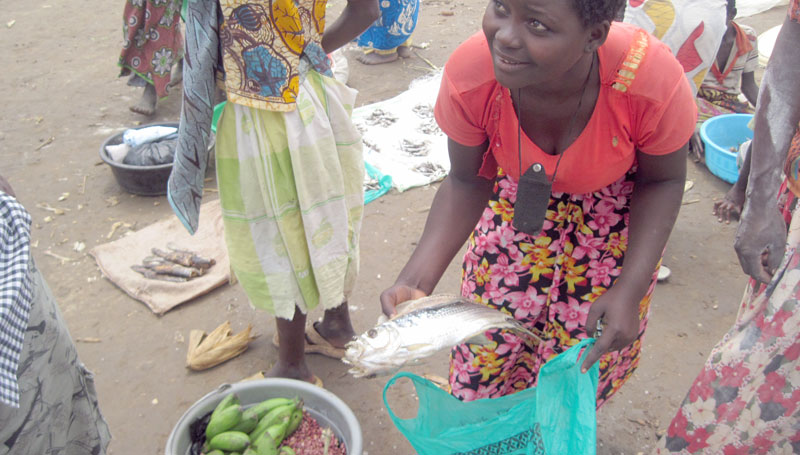News
Kaveera ban hangs in balance
Civil society activists have expressed concern over the government’s commitment to the enforcement of a total ban on polythene bags also known as Kavera.
The head of Action Coalition on Climate Change, > Enock Nimpamya expressed reservations about the commitment saying the government is not forthcoming when it comes to enforcement of the ban.
Whereas there has been a ban on Uganda’s law books banning Kavera, there had been no action regarding the enforcement, which encouraged the production and use of plastic bags of less than 30 microns across the country.
But in April this year, the National Environment Management Authority – NEMA revived the ban starting with Supermarkets in Kampala and other major towns.
The ban attracted praise from environmentalists, but scorn from manufacturers who protested it saying they had invested a lot of money in the production and importation of the polythene carrier bags.
Opponents of the ban, who included some senior government officials expressed reservations about potential loss of jobs for thousands of people.
The campaign by manufacturers was so aggressive that they got the Prime Minister Dr. Ruhakana Rugunda to intervene and order the suspension of the ban.
NEMA vowed not to relent as they kept their eyes on Supermarkets and other shops in Kampala. But in the absence of full government support and its coercive machinery meant that NEMA would not go very far.
This gave room for traders in Kaveera to do their job almost unencumbered with.But recently, August 26, 2015, Cabinet agreed to back the Total implementation of the ban without any reservations.
According to sources in the cabinet meeting, the Minister of Water and Environment, Prof. Ephraim Kamuntu told his colleagues that the ongoing implementation of the ban had greatly reduced environmental degradation in the country.
In an interview with The Sunrise, Nimpanya says that whereas it’s the right direction taken by government, it is unfortunate that the same politicians usually frustrate the enforcement of such resolutions.
He notes that for a long time they (activists) have called for a total ban on Kavera to protect the environment.
Speaking passionately about environmental protection, Nimpamya says the politicians in this government directly and indirectly benefit from the plastic manufacturing industries and therefore they tend to be soft when time for enforcement of such a significant ban comes.
He intimated that some of the manufacturers actually finance political campaigns of politicians who in turn frustrate the enforcement agency NEMA.
On their part, reacting to the same cabinet resolution to a total kaveera ban, Manufacturers think that this ban on polythene carrier bags is bound to alienate foreign investment and cast government in bad light as unreliable.
This is according to the executive director Uganda Manufacturers Association Ssebagala Kigozi. Kigozi blames the authorities for politicizing economic issues, and failing to fully investigate certain business investments, which destroy such development when they have already taken off. He says this has caused losses both for the investors, and the economy.
Kigozi who is upset by cabinet’s recent agreement, adds that it was harsh and rushed. He said the Kaveera business is something that should have been allowed to phase out gradually.
“It is very very, very unfortunate , a very big deterrent for other people to come to invest in Uagnda because they will not be certain……we would have had a gradual program of the same by government…since it licensed the same to come and compensate these producers to close shop, which is not discussed”-Ssebagala.
But giving an example of Rwanda where ban on Kaveera has been effectively implemented, Nimpanya says that there is need for political will in Uganda to see that NEMA and other government agencies are fully facilitated to comprehensively enforce the ban.
President Museveni should pronounce himself on the matter, to give a good example to the other leaders and even the manufacturers will appreciate that this is a serious resolution that must be strictly enforced.
Nimpanya had no kind words for Manufacturers who argue that the ban is not necessarily a solution to environmental degradation but rather sensitization of the public on usage.
As a way forward, Nimpanya says that before NEMA stretches its enforcement arm from the Supermarkets to other places, Production of the polythene bags must be completely stopped.
He called for an increase in NEMA’s funding to enable them hire enough man power to enforce the ban. He says that with less than 50 people staffing NEMA, the agency is over-stretched to deliver on its mandate.
“Effective enforcement of the ban would require empowerment of the relevant bodies like NEMA and the Uganda National Bureau of Standards that control the border points to address the smuggling of the dangerous plastic materials into the country,” says Nimpanya.
The activist says the voters should ask the candidates for clear positions on the environment and if they stammer, they should be denied votes.
Comments



















